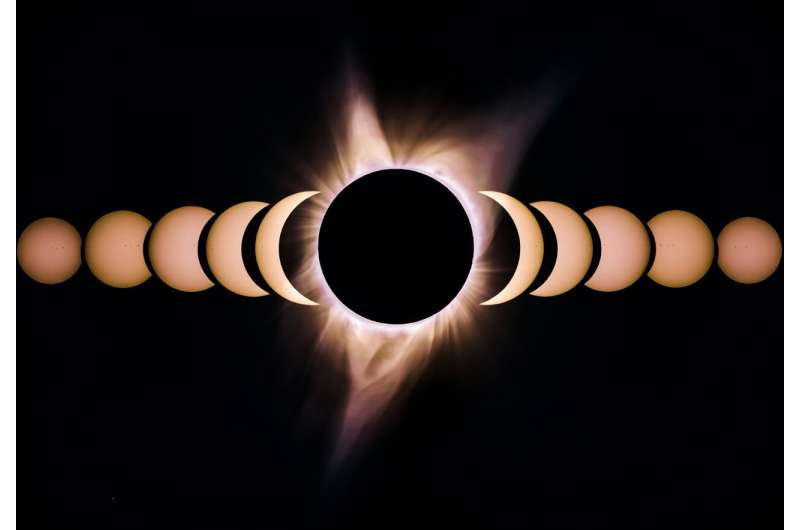Space weather is not a danger to people or animals on Earth, but solar flares and eruptions from the sun known as coronal mass ejections can cause severe disruption to power grids, satellites and other communication technologies on which modern society depends.
Professor Lucie Green (Mullard Space Science Laboratory at UCL), who is a member of the core UK team leading the mission alongside Aberystwyth University and the Space Center at the University of Surrey, said, "MESOM will offer scientists a unique opportunity to study and understand how the sun creates and controls weather in space.
"But MESOM also offers the general public an opportunity to engage with the beauty and spectacle of a total solar eclipse as all our images will be readily available. We aim to reveal the secrets of the sun while inspiring a new generation of space scientists and engineers."
Professor Huw Morgan, of Aberystwyth University, said, "As we become globally more dependent on wireless technologies, there is a growing risk of major disruption to everyday life on Earth as a result of space weather.
"MESOM is an incredibly exciting mission which will advance our scientific understanding of the solar atmosphere and space weather to new levels, enabling us to provide more accurate forecasts and take mitigating action.
"In Aberystwyth, as members of the core UK team, we are closely involved in a study mapping out the feasibility of the mission which is due to be launched in the early 2030s. We are also working with international experts in solar physics, solar atmospherics and leading experience in solar-observing space missions."
Dr. Nicola Baresi from the Surrey Space Center said, "Both solar flares and coronal mass ejections originate from the innermost layers of the sun's atmosphere, which remains elusive to current space-based instrumentation and can only be viewed in greater detail during total eclipses.
"By creating eclipses that last up to 48 minutes in space, rather than the maximum 7.5 minutes we manage to see on Earth, we stand a much better chance of unlocking their secrets."
Provided by University College London



